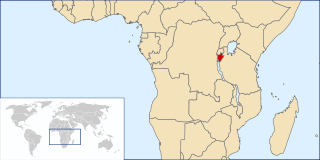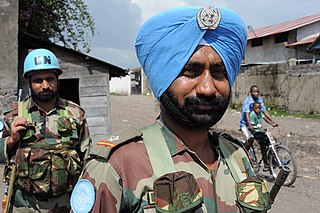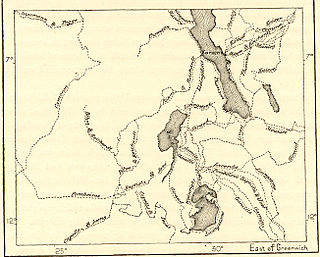 W
WUnited Nations Security Council resolution 1012, adopted unanimously on 28 August 1995, after considering the situation in an African landlocked country, Burundi. The Council established an international inquiry over the assassination of President Melchior Ndadaye during a military coup in October 1993.
 W
WUnited Nations Security Council resolution 1040, adopted unanimously on 29 January 1996, after considering letters by the Secretary-General Boutros Boutros-Ghali and statements by the President of the Security Council, the Council addressed the civil war in Burundi and efforts for political dialogue.
 W
WUnited Nations Security Council resolution 1049, adopted unanimously on 5 March 1996, after reaffirming Resolution 1040 (1996) concerning Burundi, the Council called for an end to violence in the country and discussed preparations for a conference on security in the African Great Lakes region.
 W
WUnited Nations Security Council resolution 1072, adopted unanimously on 30 August 1996, after reaffirming all resolutions and statements by the President of the Security Council on the civil war in Burundi, the Council discussed efforts for a political settlement to the conflict in the country.
 W
WUnited Nations Security Council resolution 1078, adopted unanimously on 9 November 1996, after expressing concern at the situation in the African Great Lakes region, the Council discussed proposals for a regional conference on security and a multinational humanitarian force in eastern Zaire.
 W
WUnited Nations Security Council resolution 1080, adopted unanimously on 15 November 1996, after reaffirming Resolution 1078 (1996) on the situation in the African Great Lakes region, the Council, acting under Chapter VII of the United Nations Charter, established a multinational humanitarian force in eastern Zaire.
 W
WUnited Nations Security Council resolution 1161, adopted unanimously on 9 April 1998, after recalling all previous resolutions on Rwanda, particularly resolutions 918 (1994), 997 (1995), 1011 (1995), 1013 (1995) and 1053 (1996), the Council reactivated the Commission of Inquiry concerning violations of the arms embargo against former Rwandan government forces.
 W
WUnited Nations Security Council resolution 1286, adopted unanimously on 19 January 2000, after reaffirming all resolutions and statements by the President of the Security Council on the civil war in Burundi, the Council supported the efforts of former South African President Nelson Mandela in reaching a political settlement to the conflict in the country.
 W
WUnited Nations Security Council resolution 1341, adopted unanimously on 22 February 2001, after recalling resolutions 1234 (1999), 1258 (1999), 1265 (1999), 1273 (1999), 1279 (1999), 1291 (2000), 1296 (2000), 1304 (2000), 1323 (2000) and 1332 (2000) on situation in the Democratic Republic of the Congo, the Council demanded that all parties to the conflict in the country implement disengagement plans and adopt withdrawal plans for foreign troops by 15 May 2001.
 W
WUnited Nations Security Council resolution 1355, adopted unanimously on 15 June 2001, after recalling resolutions 1234 (1999), 1258 (1999), 1265 (1999), 1273 (1999), 1279 (1999), 1291 (2000), 1296 (2000), 1304 (2000), 1323 (2000), 1332 (2000) and 1341 (2001) on situation in the Democratic Republic of the Congo, the Council extended the mandate of the United Nations Mission in the Democratic Republic of Congo (MONUC) until 15 June 2002 subject to review every four months.
 W
WUnited Nations Security Council resolution 1375, adopted unanimously on 29 October 2001, after reaffirming all resolutions and statements by the President of the Security Council on the civil war in Burundi, endorsed efforts by South Africa and other states to implement the Arusha Accords and supported the establishment of an interim multinational security presence in Burundi.
 W
WUnited Nations Security Council resolution 1376, adopted unanimously on 9 November 2001, after recalling all previous resolutions on situation in the Democratic Republic of the Congo, the Council supported the third phase of the deployment of the United Nations Mission in the Democratic Republic of Congo (MONUC).
 W
WUnited Nations Security Council resolution 1445 was adopted unanimously on 4 December 2002. After recalling all previous resolutions on situation in the Democratic Republic of the Congo, the Council expanded the military component of the United Nations Mission in the Democratic Republic of Congo (MONUC) to a level of 8,700 military personnel–up from 4,250–in two task forces.
 W
WUnited Nations Security Council resolution 1493, adopted unanimously on 28 July 2003, after recalling all resolutions on the situation in the Democratic Republic of the Congo, the Council extended the mandate of the United Nations Mission in the Democratic Republic of Congo (MONUC) until 30 July 2004 and raised its troop level from 8,700 to 10,800.
 W
WUnited Nations Security Council Resolution 1545, adopted unanimously on 21 May 2004, after recalling all resolutions on the situation in Burundi, particularly Resolution 1375 (2001), the Council established the United Nations Operation in Burundi (ONUB) to bring about peace and national reconciliation in the country.
 W
WUnited Nations Security Council resolution 1565, adopted unanimously on 1 October 2004 after recalling all previous resolutions on the situation in the Democratic Republic of the Congo, extended the mandate of the United Nations Mission in the Democratic Republic of Congo (MONUC) until 31 March 2005 and authorised an additional deployment of 5,900 troops and police. It reaffirmed the commitment to respect the “sovereignty, territorial integrity and political independence [sic]” of Congo and States in the region.
 W
WUnited Nations Security Council resolution 1577, adopted unanimously on 1 December 2004, after recalling Resolution 1545 (2004) on the situation in Burundi, the Council extended the mandate of the United Nations Operation in Burundi (ONUB) for a period of six months until June 1, 2005.
 W
WUnited Nations Security Council resolution 1596, adopted unanimously on 18 April 2005, after recalling all previous resolutions on the situation in the Democratic Republic of the Congo, including resolutions 1493 (2003), 1533 (2004), 1552 (2004), 1565 (2004) and 1592 (2005), the Council expanded the arms embargo to include all recipients of weapons in the country, and imposed a travel ban and asset freeze on those violating the embargo.
 W
WUnited Nations Security Council resolution 1602, adopted unanimously on 31 May 2005, after recalling resolutions 1545 (2004), 1565 (2004), 1577 (2004) and 1596 (2005) on the situation in Burundi, the Council extended the mandate of the United Nations Operation in Burundi (ONUB) for a period of six months until 1 December 2005.
 W
WUnited Nations Security Council resolution 1606, adopted unanimously on 20 June 2005, after reaffirming its support for the Arusha Peace Agreement regarding the situation in Burundi, the Council requested the Secretary-General Kofi Annan to begin negotiations on a truth commission and special chamber within the country's court system.
 W
WUnited Nations Security Council resolution 1641, adopted unanimously on 30 November 2005, after recalling Resolution 1545 (2004) regarding the situation in Burundi, the Council extended the mandate of the United Nations Operation in Burundi until 15 January 2006.
 W
WUnited Nations Security Council Resolution 1649, adopted unanimously on 21 December 2005, after recalling all previous resolutions on the situation in the Democratic Republic of the Congo, including resolutions 1533 (2004), 1565 (2004), 1592 (2005), 1596 (2005) and 1616 (2005), 1621 (2005) and 1628 (2005), the Council extended and expanded sanctions against the country until 31 July 2006, and demanded that foreign fighters disarm or face sanctions.
 W
WUnited Nations Security Council Resolution 1650, adopted unanimously on 21 December 2005, after recalling Resolution 1545 (2004) regarding the situation in Burundi, the Council extended the mandate of the United Nations Operation in Burundi (ONUB) until 1 July 2006.
 W
WUnited Nations Security Council Resolution 1653, adopted unanimously on January 27, 2006, after recalling previous resolutions concerning the situations in the African Great Lakes region, Democratic Republic of the Congo and Burundi, particularly resolutions 1625 (2005), 1631 (2005), 1649 (2005) and 1650 (2005), the Council addressed the stability of the Great Lakes region in Africa.
 W
WUnited Nations Security Council Resolution 1669, adopted unanimously on April 10, 2006, after recalling previous resolutions concerning the situation in Burundi and the Democratic Republic of the Congo, particularly Resolution 1650 (2005), the Council authorised the redeployment of personnel from the United Nations Operation in Burundi (ONUB) to the United Nations Mission in the Democratic Republic of the Congo (MONUC) until July 1, 2006.
 W
WUnited Nations Security Council Resolution 1692, adopted unanimously on June 30, 2006, after recalling resolutions on the situation in Burundi and the African Great Lakes region, particularly resolutions 1650 (2005) and 1669 (2006), the Council extended the mandate of the United Nations Operation in Burundi (ONUB) until December 31, 2006.
 W
WUnited Nations Security Council Resolution 1719, adopted unanimously on October 25, 2006, after recalling resolutions on the situation in Burundi, including resolutions 1545 (2004), 1577 (2004), 1602 (2005), 1606 (2005), 1650 (2005) and 1692 (2006), the Council established the United Nations Integrated Office in Burundi (BINUB) for an initial period of one year to assist in the country's long-term peace and stability.
 W
WUnited Nations Security Council Resolution 1736, adopted unanimously on December 22, 2006, after recalling all previous resolutions concerning the situation in the Democratic Republic of the Congo, in Burundi and in the Great Lakes region of Africa, the Council increased the military strength of the United Nations Mission in the Democratic Republic of Congo (MONUC) from January 1, 2007 to February 15, 2007.
 W
WUnited Nations Security Council Resolution 1902, adopted unanimously on December 17, 2009, after emphasising the need for the international community to maintain peace and long-term development in Burundi, the Council extended the mandate of the United Nations Integrated Office in Burundi (BINUB), as established in resolutions 1719 (2006), 1791 (2007) and 1858 (2008), for another year, until 31 December 2010.
 W
WUnited Nations Security Council Resolution 1959, adopted unanimously on December 16, 2010, after recalling resolutions 1719 (2006), 1791 (2007), 1858 (2008) and 1902 (2009), the Council established the United Nations Office in Burundi (BNUB) to replace the United Nations Integrated Office in Burundi (BINUB) as part of a scaled-down United Nations presence in the country for an initial period of twelve months, beginning January 1, 2011.
 W
WUnited Nations Security Council Resolution 2027 was unanimously adopted on 20 December 2011, after recalling resolutions 1719 (2006), 1791 (2007), 1858 (2008) and 1902 (2009) and 1959 (2010). It mandated that the UNSC will "continue its support for the Government of Burundi in the areas of socio-economic development, reintegrating conflict-affected populations and deepening the country’s regional integration."